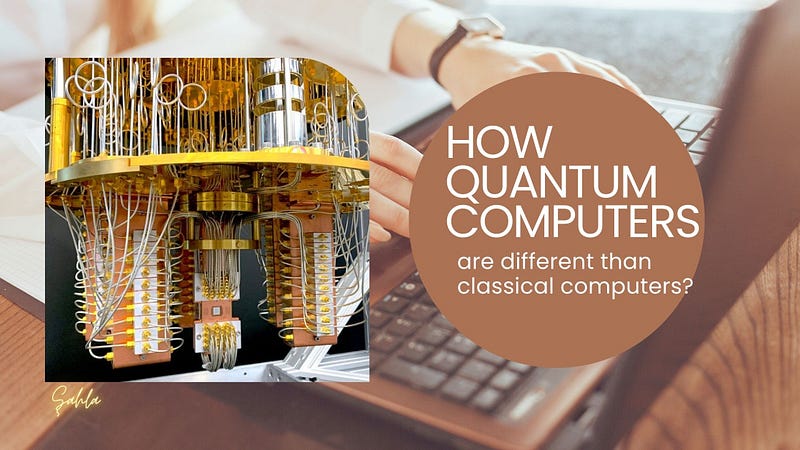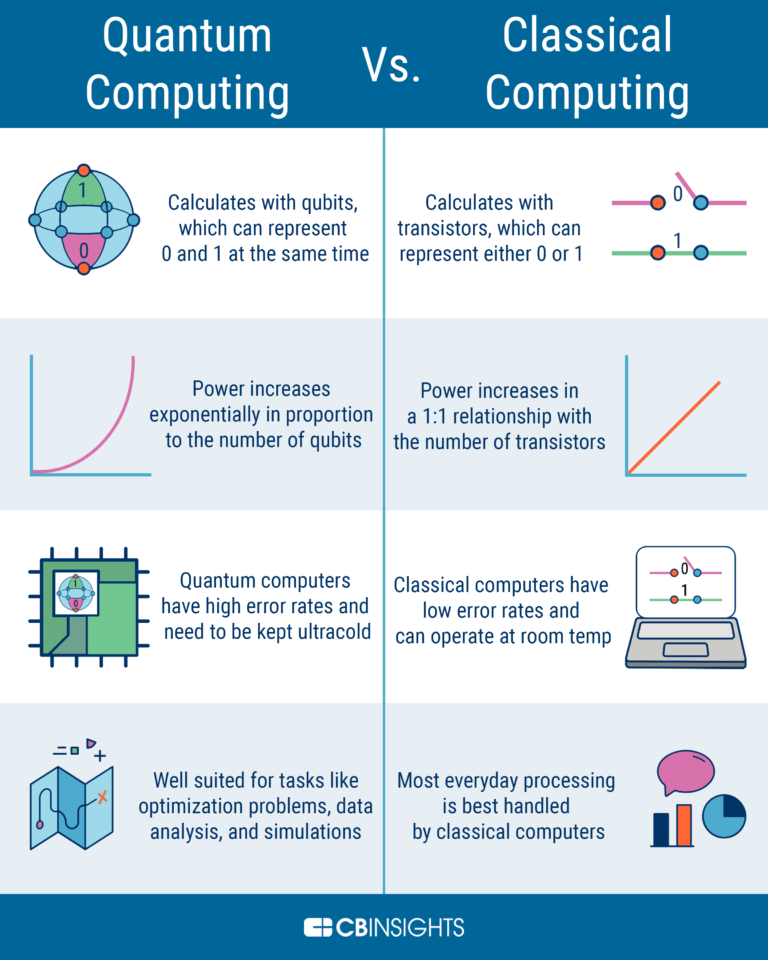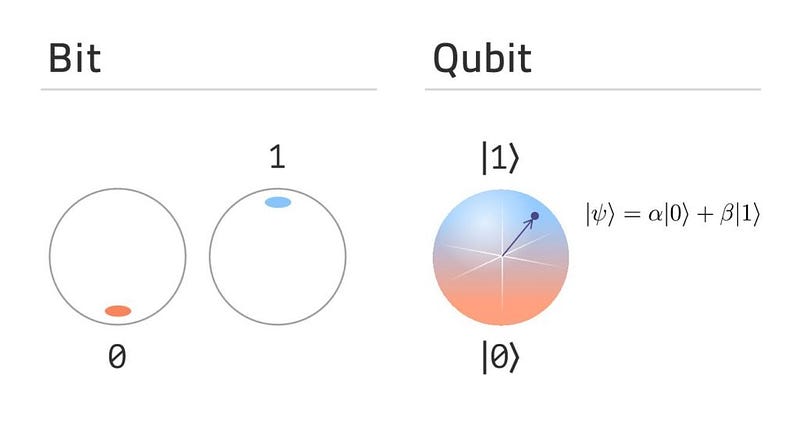Exploring the Distinctions Between Quantum and Classical Computers
Written on
Understanding Quantum and Classical Computers
In today's digital age, computers are a vital part of our lives. But have you ever considered the mechanics behind their operation? In this discussion, we will delve into the primary distinctions between Quantum Computers and Classical Computers.
The structure of this exploration includes: 1. Brief overview of classical computers 2. Brief overview of quantum computers 3. A summary with additional resources for further reading
The core difference lies in their foundations: Classical computers operate on the principles of classical physics, while quantum computers function according to the rules of quantum mechanics.

In this article, we will investigate the variances between these two computer types and their operational frameworks, without delving too deeply into technicalities. For those seeking more information, I've provided additional resources at the end.
Classical Computers
Binary System
Classical computers utilize a binary system where all data is expressed through two states: 0 and 1. These states are represented by electronic circuits that can either be powered (1) or unpowered (0). The arrangement of these circuits enables logical operations such as addition, subtraction, and comparisons.
Information is processed via classical logic gates, including AND, OR, and NOT gates, which manipulate these bits to yield output values. The fundamental unit of a classical computer is the bit, which signifies either a 0 or a 1. Combinations of bits form larger units known as bytes, which represent characters and numerical values.
Classical Physics Principles
Classical computers rely on the laws of classical physics, specifically mechanics and electromagnetism. Information processing occurs through electronic circuits composed of transistors, capacitors, and other components.
The Central Processing Unit (CPU)
The CPU serves as the computer's brain, responsible for calculations and instruction execution. Classical computers operate by following a sequence of instructions stored in memory. When a program or file is accessed, the computer retrieves and executes the corresponding instructions, outputting the results to a display or saving them to storage.

Quantum Computers
Qubits
Quantum computers are a cutting-edge technology that leverage quantum mechanics principles. Unlike classical bits, which convey information in a binary format, quantum computers utilize quantum bits, or qubits. Qubits can exist in multiple states simultaneously.

While classical computers are constructed from bits, quantum computers are built from qubits, which can represent both 0 and 1 at the same time due to a property known as superposition.
Principles of Quantum Mechanics
Qubits behave according to quantum mechanics, which governs matter and energy on a microscopic scale. A notable feature of quantum mechanics is wave-particle duality, implying that matter can display both wave-like and particle-like characteristics.
Superposition enables qubits to be in multiple states simultaneously. Additionally, entanglement links qubits, allowing their states to be correlated. When qubits are entangled, the state of one qubit instantaneously affects the state of another, no matter the distance separating them.
Architecture — Quantum Gates
The architecture of quantum computers differs from that of classical systems. Rather than employing circuits to perform logical operations, quantum computers use quantum gates. These gates, akin to logic gates in classical computing, operate on qubits.
Prominent quantum gates include the Hadamard gate, which establishes a superposition of states, and the CNOT gate, utilized to entangle qubits.
Quantum Algorithms
Quantum algorithms consist of sequences of operations on qubits using quantum gates. One well-known quantum algorithm is Shor’s algorithm, which factors large numbers efficiently, posing significant implications for cryptography by potentially compromising encryption reliant on the difficulty of factoring.
In Summary
Classical computers are founded on classical physics and utilize classical logic gates, whereas quantum computers draw upon quantum mechanics and employ quantum logic gates. Quantum computers harness qubits, which can exist in superposition and be entangled, enabling them to execute certain computations much more swiftly than classical counterparts.
Further Reading
For those eager to explore the realm of quantum computing further, here are some valuable sources:
Thank you for joining me in this exploration! I hope you found this discussion informative and engaging. Looking forward to our next conversation!
The first video titled "The TRUE Difference Between a Quantum Computer and Your Home PC" provides a comprehensive breakdown of how quantum computers stand apart from traditional PCs, addressing their unique functionalities and applications.
In the second video, "Quantum Computing Expert Explains One Concept in 5 Levels of Difficulty," a specialist clarifies the fundamental principles of quantum computing at varying levels of complexity, catering to both novices and experts.